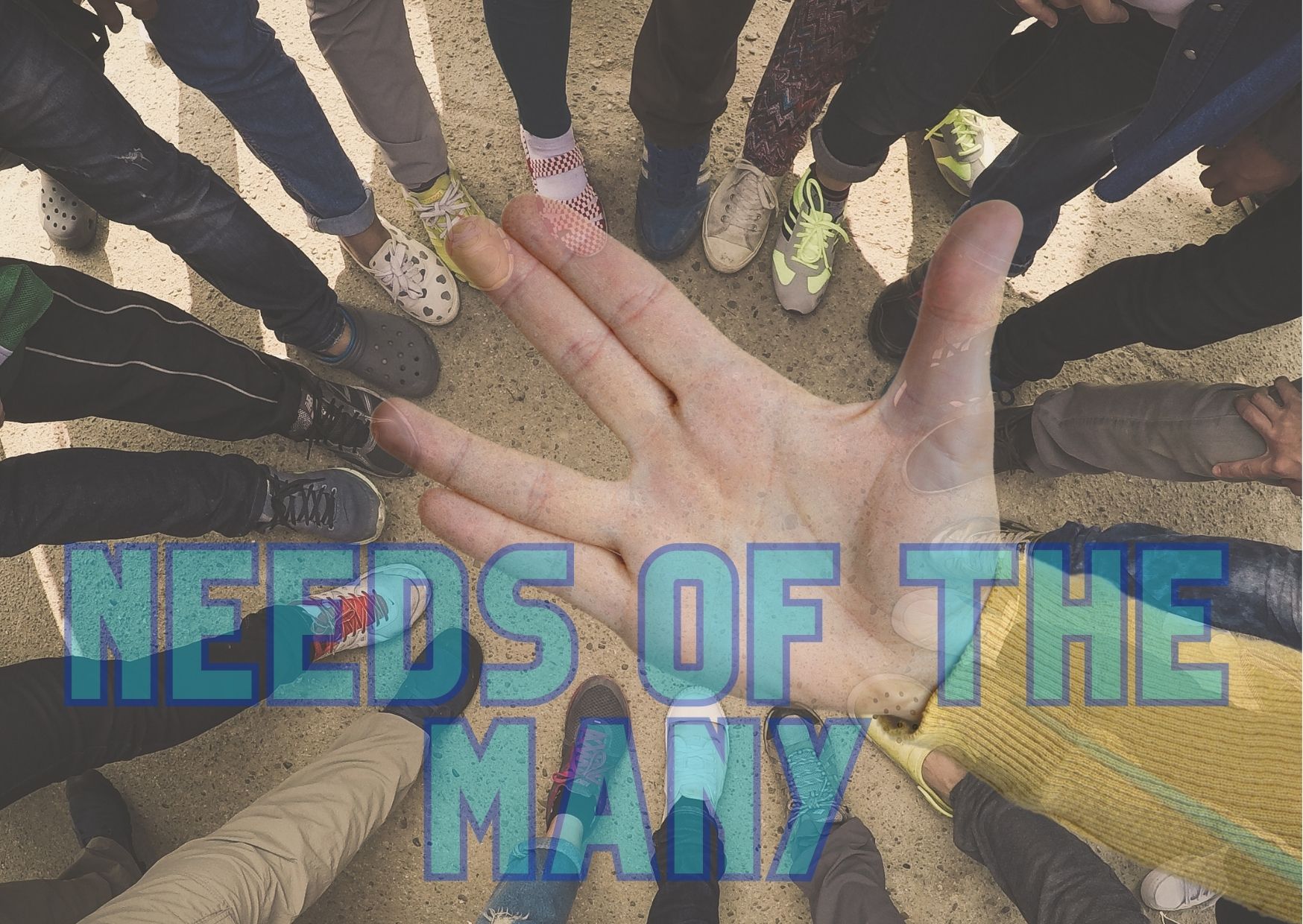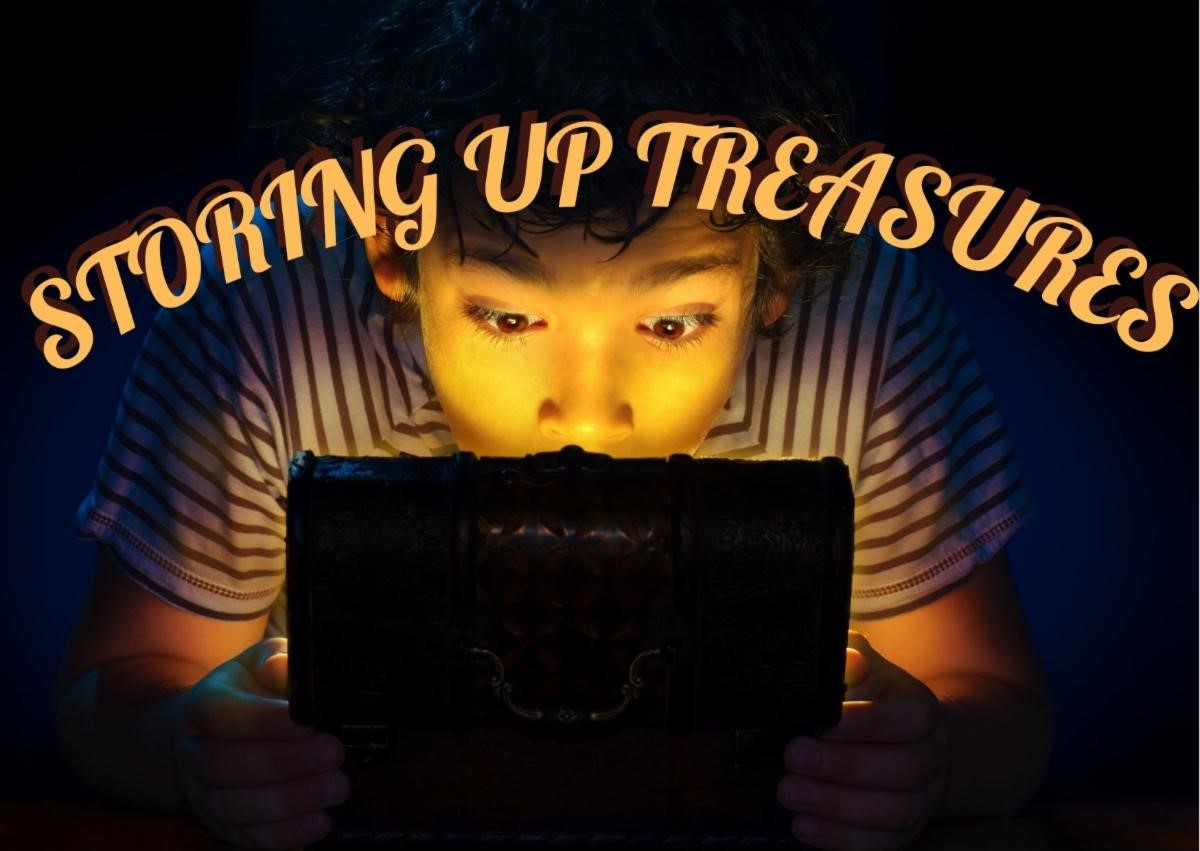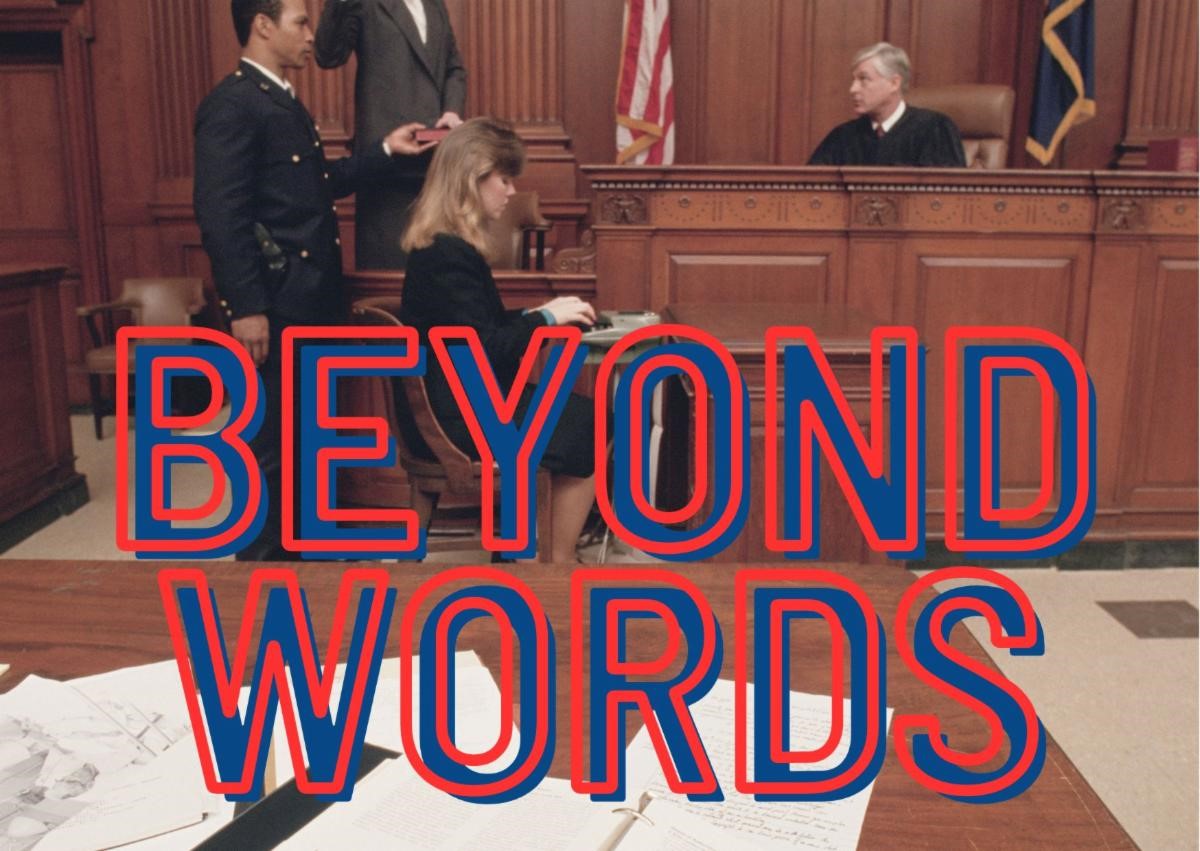
Needs of the Many

As engrained as this is in our way of life, let me remind you that our beliefs are rooted in a near-eastern collectivist culture. It is a culture where ideas like hospitality and generosity are foundational paradigms everyone should pursue. Through the prophet Isaiah we are told of an individual that suffered so that many could be justified. One would sacrifice himself so that “the many” would benefit.
Isaiah 53:10-12
“But the LORD desired to crush Him, causing Him grief; If He renders Himself as a guilt offering, He will see His offspring, He will prolong His days, And the good pleasure of the LORD will prosper in His hand. 11 As a result of the anguish of His soul, He will see it and be satisfied; By His knowledge the Righteous One, My Servant, will justify the many, For He will bear their wrongdoings. 12 Therefore, I will allot Him a portion with the great, And He will divide the plunder with the strong, Because He poured out His life unto death, and was counted with wrongdoers; Yet He Himself bore the sin of many, and interceded for the wrongdoers.”
In any context, the Suffering Servant is an example of selflessness and sacrifice. It is an ideal to rally around and pursue. Whether you are in a culture that prizes the group or the individual, the notion that someone would endure pain and grief for others is nothing short of extraordinary. The human condition is to survive, and to choose the opposite willingly is exceptional.
Sadly, we have become numb to this type of language. We are so accustomed to the sacrifice of Christ that we interpret him as the exception and not the rule. We often analyze this concept as this was Jesus’ purpose; he died for me. Once again, this emphasizes “me” over “we” and frames our bias as one of an individualized culture. Because of this bias, our churches and fellowship have suffered. We perceive our gatherings as, “What will I gain from this experience?” “How will this church service build me up?” However, this is not the culture of God’s people. The culture that the Bible promotes is that because Jesus willingly went to the cross, so should we. Look at this passage from Paul as he writes to the church in Rome, epitomizing the look and pursuit of the body of Christ.
Romans 12:4-18
“For just as we have many parts in one body and all the body’s parts do not have the same function, 5 so we, who are many, are one body in Christ, and individually parts of one another. 6 However, since we have gifts that differ according to the grace given to us, each of us is to use them properly: if prophecy, in proportion to one’s faith; 7 if service, in the act of serving; or the one who teaches, in the act of teaching; 8 or the one who exhorts, in the work of exhortation; the one who gives, with generosity; the one who is in leadership, with diligence; the one who shows mercy, with cheerfulness. 9 Love must be free of hypocrisy. Detest what is evil; cling to what is good. 10 Be devoted to one another in brotherly love; give preference to one another in honor, 11 not lagging behind in diligence, fervent in spirit, serving the Lord; 12 rejoicing in hope, persevering in tribulation, devoted to prayer, 13 contributing to the needs of the saints, practicing hospitality. 14 Bless those who persecute you; bless and do not curse. 15 Rejoice with those who rejoice, and weep with those who weep. 16 Be of the same mind toward one another; do not be haughty in mind, but associate with the lowly. Do not be wise in your own estimation. 17 Never repay evil for evil to anyone. Respect what is right in the sight of all people. 18 If possible, so far as it depends on you, be at peace with all people.”
Read this passage several times and use any translation or version that suits you. Because this is what the body of Christ looks like. The depiction in Romans 12 looks like a group of people pursuing the church’s betterment. It looks like self-sacrifice. It looks like putting the needs of the “one” below the needs of “the many.”
Practically speaking, the mentality would be that as we live our lives, we continually think about who we can serve today. When we gather, our thought process should be, “Who can I encourage or edify today?” “How can I sacrifice for others this morning?” To truly become like Jesus, we must be willing to give up our own individualistic desires so that we can benefit the collective whole. A mentality of service echoes the words of Jesus,
I know it is counter-cultural to live in harmony with a group; however, that is our calling. If you are not living for others, you are living for yourself, and you are concerned only for the needs of the one and not the needs of the many.
Pieces

As great a picture as a puzzle is, it is not the best representation of the church. The best expression of the church is found in the words of Paul. He describes us as a body.
“For just as the body is one and has many members, and all the members of the body, though many, are one body, so it is with Christ. For in one Spirit we were all baptized into one body–Jews or Greeks, slaves or free–and all were made to drink of one Spirit. For the body does not consist of one member but of many.” (1 Corinthians 12:12-14 ESV)
The human body is a much stronger metaphor. If we are missing a piece of our body, it hurts. We feel it. It is noticeable. Our hands, fingers, and eyes do not grow back. When a part of the body is gone… a hole is present, and it is obvious. As we note further in the passage, hands, ears, and eyes are not interchangeable. They all have distinguishing roles and functions within the body. Functional uniqueness tells us something important about our lives together: you are vital and necessary. The body needs you. You are more important than you can ever imagine. Sure, the body might be able to limp along or compensate for a missing body part, but wouldn’t it be better if it didn’t have to?
A few weeks ago, we had our Song Fest. And it was wonderful. It was uplifting and a huge blessing. But a lot of body parts were missing. It was noticeable. It hurt. Some from other bodies drove 4+ hours to be a part of the gathering, and I am thankful that they did because it only encouraged us all the more.
I wish that these were isolated incidents. However, when we have functions, I can’t help but notice body parts missing. It is heartbreaking to think that someone in our congregation doesn’t see the value in being present. There is a profound beauty in being a part of something bigger than themselves. Some must believe that the body will be fine without them being there. That is not true. The body needs you. It is weaker when you aren’t here.
You might consider yourself only a small percentage of the whole. You might think, “No one notices when I am not there.” But I assure you that we all notice. Being integrated into a body strengthens you in every possible way. It is a benefit to the body and the parts, and it is a perfectly complete organism. To the church in Ephesus, Paul writes:
“Instead, speaking the truth in love, we will grow to become in every respect the mature body of him who is the head, that is, Christ. From him the whole body, joined and held together by every supporting ligament, grows and builds itself up in love, as each part does its work.” (Ephesians 4:15-16).
Each part is growing; each part is supporting other parts. We can be so much more if we are involved. We become the complete and mature body, working in unison, harmony, and tandem with each other. We need you. Each part individually is just a piece, but those pieces make up the body. We are all growing together and upward. We are all pieces.
Infinity

Some ideas are more challenging to grasp than others. We all understand that we can multiply numbers and even multiply our words to an extent. I can remind my kids that I had previously told them to clean up their rooms three times before they finally tidied up. Cooper will also multiply his words by saying something like, “You already told me 756,000 times.” We all know that this is an exaggeration, but it conveys the meaning well. The translation is I have told him more times than he cares to count.
Perhaps you remember doing the same thing when you were a kid. You would add “infinity” to the end of a phrase to show how much you agree with a statement. For example, “I love you, infinity.” Or “Infinity + 1.” We want to intensify this statement to a point where it is not calculable.
The infinite is a complex concept to grasp. There is no real beginning or end. Theo has asked me how big is “infinity.” That is a challenging question. Because infinity can be small, there is an infinite number of numbers between 1 and 2 (1.1, 1.11, 1.111); they are not whole numbers but have numerical value. Then again, infinity can be an endless amount of whole numbers more than can ever be considered. The highest value you arrive at can always be higher simply by adding 1.
Perhaps this is why when God describes large number values, He does not provide a countable number. Instead, he makes statements like “numerous as the sand on the seashore” or “stars in the sky.” They hold tremendous value but are largely impossible to figure out and calculate. We can safely assume it is too much to count or comprehend. That is why one of my favorite verses is in Psalm 103.
Psalm 103:10-12 – “He has not dealt with us according to our sins, Nor rewarded us according to our guilty deeds. 11 For as high as the heavens are above the earth, So great is His mercy toward those who fear Him. 12 As far as the east is from the west, So far has He removed our wrongdoings from us.”
It is almost impossible to consider the magnitude of God’s mercy, grace, and forgiveness. And yet this poetic verse allows me to comprehend that my sins are gone. They are so far gone that from horizon to horizon, my failings have disappeared. They have not been relegated to another place or tallied for a later time to remind me of my wrongdoings. Instead, God reassures us time and time again that He will wipe the slate clean in a way that we can understand. Quoting the prophet Jeremiah, the preacher of Hebrews states:
Through the blood of Jesus, those sins are gone. God accounted for them, and Jesus paid the sum in full. There is no outstanding balance to be reported. It may seem unfathomable, much like the concept of infinity, but it is hard to wrap our minds around. Yet, God has promised that he has removed our sins from the east to the west through the blood of the Lamb. They are gone, infinity + 1.
Power

Case in point, about a week ago, they still needed to cut their front lawn. It had become a jungle of vegetation reaching almost a foot in some areas (not that I actually measured it). They did what any new homeowner would do. They went out and bought a lawnmower. Then, they went out and bought a new electric mower. These new mowers are great, but due to the grass’s depth and the yard’s size, the mower’s new battery was drained relatively quickly. When you buy an electric mower, you typically only get one battery; these batteries cost approximately $150-250, depending on the Ah (ampere-hour or amp-hour) or how long the battery will last while operating under normal conditions. The resulting situation was a lawnmower stuck in a sea of grass while waiting for its only power source to recharge.
I don’t fault the new homeowners; that is simply a mistake that you only make a few times. We have all been there; we have overextended ourselves. We have bitten off more than we can chew. We drove too far on a half-tank of gas. We’ve all had these moments where we are stuck in the middle of a problem, having run out of power.
Romans 1:16, 20 NASB20 – “16 For I am not ashamed of the gospel, for it is the power of God for salvation to everyone who believes, to the Jew first and also to the Greek. … 20 For since the creation of the world His invisible attributes, that is, His eternal power and divine nature, have been clearly perceived, being understood by what has been made, so that they are without excuse.”
This word power is more significant than we can imagine. And yet it is something that I don’t think we take advantage of to its fullest extent. In both verses, the power is from God, and it is impossible to downplay the immense power of God. He created the heavens and the earth and spoke light into existence. The Greek word for power in these verses is δύναμις dýnamis; it is from this root that we gain our word dynamite. We have access to a power that is explosive and sustaining. The gospel and the world’s creation were affected by and through the same power. It is this same power that lives in every one of us. Paul tells us in 2 Corinthians that this power keeps us going and supports us.
2 Corinthians 4:7-12 NASB20 – “7 But we have this treasure in earthen containers, so that the extraordinary greatness of the power will be of God and not from ourselves; 8 we are afflicted in every way, but not crushed; perplexed, but not despairing; 9 persecuted, but not abandoned; struck down, but not destroyed; 10 always carrying around in the body the dying of Jesus, so that the life of Jesus may also be revealed in our body. 11 For we who live are constantly being handed over to death because of Jesus, so that the life of Jesus may also be revealed in our mortal flesh. 12 So death works in us, but life in you.”
Paul makes the case that even though we may encounter every hardship, including the expiration of our physical bodies. The element that makes all of this possible is not our ability or fortitude; it is from the same power that created the universe that raised a body from the grave that loves the unlovable. This is the power that propels us. This is the power that picks us up when our lawn mower stalls in the front yard. The question is how to keep from getting run down. We must keep plugging into the power that comes from above. We must tap into the real and lasting power that comes from above.
Cavities

Prior to this visit, my teeth didn’t hurt. I was unaware of the hidden problems within my mouth. Unchecked, my tooth would have continued to decay, and my issues would have worsened over time. For the most part, we have no idea what is happening in our mouths. Unless we have routine check-ups, we can harbor harmful conditions in our teeth. To put it another way, we are blind to our present situation, and we can often live ignorantly in a state of decay until something more traumatic happens. However, because of the expertise and knowledge of the dentist, I trusted his advice and was delivered from the ensuing threat.
As humans, we are blind to our corrupt condition. We think, “I am okay, I don’t have any pain or problems.” Or even more dangerous, we declare, “I’m good.” We stumble through life without knowing the true jeopardy of our position. Yet. When the Creator of the universe, described as the Life-Giving Spirit, communicates with us through His prophets and apostles, He says:
Jeremiah 17:9 NASB20 – “The heart is more deceitful than all else And is desperately sick; Who can understand it?”
Mark 7:21-22 NASB20 – “For from within, out of the hearts of people, come the evil thoughts, [acts of] sexual immorality, thefts, murders, [acts of] adultery, 22 deeds of greed, wickedness, deceit, indecent behavior, envy, slander, pride, [and] foolishness.”
Romans 3:9-18, 23 NASB20 – “What then? Are we [the Jews] better than they? Not at all; for we have already charged that both Jews and Greeks are all under sin, as it is written:
“THERE IS NO RIGHTEOUS PERSON, NOT EVEN ONE;
THERE IS NO ONE WHO UNDERSTANDS; THERE IS NO ONE WHO SEEKS OUT GOD;
THEY HAVE ALL TURNED ASIDE; TOGETHER, THEY HAVE BECOME CORRUPT; THERE IS NO ONE WHO DOES GOOD; THERE IS NOT EVEN ONE.
THEIR THROAT IS AN OPEN GRAVE; WITH THEIR TONGUES, THEY KEEP DECEIVING,
THE VENOM OF ASPS IS UNDER THEIR LIP;
THEIR MOUTH IS FULL OF CURSING AND BITTERNESS;
THEIR FEET ARE SWIFT TO SHED BLOOD,
DESTRUCTION AND MISERY ARE IN THEIR PATHS,
AND THEY HAVE NOT KNOWN THE WAY OF PEACE.
THERE IS NO FEAR OF GOD BEFORE THEIR EYES.”…
23 “for all have sinned and fall short of the glory of God.”
When we read this, we become aware of our actual disease. We think we are better than we are. We believe that we are impervious to decay, and the virtue of our character upholds us. Yet, we are rotting under the surface. Humanity has cavities that are not visible to the naked eye; therefore, we must trust the expertise and knowledge of the One who made us. That alone takes a considerable amount of faith; however, this is our understanding that we don’t have all the answers.
I think about the dentist poking my tooth to demonstrate the lack of hardness in my enamel. We can do the same thing spiritually. If we are honest with ourselves, we realize we aren’t perfect and have deficiencies. We can tell we are not complete. And no amount of metaphorical brushing or fluoride will fix our problem. First, sin-sickness must be rooted out and destroyed within our hearts. Then, we must fill our hearts with something else. Something more durable that is not prone to the harmful effects of sin. Something eternal and everlasting.
Ephesians 3:14-21 – “For this reason I kneel before the Father, 15 from whom every family in heaven and on earth derives its name. 16 I pray that out of his glorious riches he may strengthen you with power through his Spirit in your inner being, 17 so that Christ may dwell in your hearts through faith. And I pray that you, being rooted and established in love, 18 may have power, together with all the Lord’s holy people, to grasp how wide and long and high and deep is the love of Christ, 19 and to know this love that surpasses knowledge–that you may be filled to the measure of all the fullness of God. 20 Now to him who is able to do immeasurably more than all we ask or imagine, according to his power that is at work within us, 21 to him be glory in the church and in Christ Jesus throughout all generations, for ever and ever! Amen.”
We must admit on some level that our hearts have these areas of decay and corrosion. How will we choose to fill our troubled hearts? Will we ignorantly dismiss the warnings presented to us? Or will we find our security in God and His Son, letting Him fill our emptiness or cavities?
Richland Church of Christ
Found

By the time I realized what I had done, I was already at the Home Depot on Duportail, and the wallet was gone. I immediately began retracing my steps; however, seeing a brown wallet from a moving vehicle was nearly impossible. After I retraced my route twice, I admitted defeat and began calling banks to cancel the cards in my billfold and preparing to get new IDs. However, before I submitted any full cancellations, I told myself to wait 48 hours in case it happened to turn up somewhere.
Then it happened at 8:26 am on Sunday; a random stranger sent my wife a message saying they had found my wallet. Immediately after services, I rushed to his house to claim my lost belongings. If you have ever lost something like that, it is a feeling you can’t contain; it is relief mixed with joy, overflowing with gratitude.
In Luke 15, Jesus tells us three parables regarding lost items. And because we are often the wayward and lost things, we identify with the feeling of being found. Yet, the sensation of recovering something that was lost is undeniably better. Often, the lost items do not know they are lost; my wallet had no idea it was gone floating on the winds of uncertainty. While the one who lost them knows they are gone and has to deal with that sorrow and the question of “What if?” And therefore, when the sadness is gone and replaced by joy, how great is that rejoicing?
Luke 15:5-7, 9-10, 32 NASB20 – “And when he has found it, he puts it on his shoulders, rejoicing. 6 “And when he comes home, he calls together his friends and his neighbors, saying to them, ‘Rejoice with me, because I have found my sheep that was lost!’ 7 “I tell you that in the same way, there will be more joy in heaven over one sinner who repents than over ninety-nine righteous people who have no need of repentance. …
9 “And when she has found it, she calls together her friends and neighbors, saying, ‘Rejoice with me, because I have found the coin which I had lost!’ 10 “In the same way, I tell you, there is joy in the presence of the angels of God over one sinner who repents.”…
32 ‘But we had to celebrate and rejoice, because this brother of yours was dead and has begun to live, and was lost and has been found.'”
Is it any wonder why Jesus tells this from the perspective of God and the heavenly realm? Can you imagine the amount of rejoicing in heaven when someone is found again? God is the originator of emotions, and the Bible describes Him with the same adjectives and emotions we can experience. Leading me to believe that the joy He feels is superior to ours, as He more fully understands the ramifications between our states of being lost and found. I wish for only a moment that we could appreciate the delight God feels when someone returns to His embrace.
I was beyond excited to have my wallet returned. To know that it was back in my possession brought considerable happiness. And it was only a trivial wallet. It compares nothing to someone’s soul. Perhaps that is why all of heaven rejoices when those who are lost become found. When the shepherd finds the wayward sheep or when the son returns from their time of wild living. Let’s find lost things and fill heaven with great rejoicing. Let’s get to celebrating.
Storing Up Treasures

Under the pretext of competition, there is something that is infinitely more important. It is having young people see a model of faith lived out and displayed by peers. The world of vibrant faith is isolating, as Jesus described in his sermon, which he presented on a mountainside.
Matthew 5:11-12 “Blessed are you when people insult you and persecute you, and falsely say all kinds of evil against you because of Me. 12 “Rejoice and be glad, for your reward in heaven is great; for in this same way they persecuted the prophets who were before you.”
When you exhibit your faith externally, people will notice, and many times they will cringe and despise you in response to your outward display. Yet, these young people can, for one weekend, see that they are not alone. They can experience that many more like them are holding onto their faith. It can be a significant boost for their spiritual lives. Much like Elijah when he is hiding from Jezebel.
1 Kings 19:10, 18 “[Elijah] replied, “I have been very zealous for the LORD God Almighty. The Israelites have rejected your covenant, torn down your altars, and put your prophets to death with the sword. I am the only one left, and now they are trying to kill me too.”… 18 [The LORD said to him] Yet I reserve seven thousand in Israel–all whose knees have not bowed down to Baal and whose mouths have not kissed him.”
For Elijah, this was a life-changing, faith-strengthening event, and I know it is the same for so many of our youth who wander school halls filled with contradictory and conflicting beliefs. They sit among friends who have “bowed down to Baal” who pay lip service to a culture that is hostile to God. They feel all alone. However, for one weekend, they see others who worship and revere the God of Heaven’s Armies. And I love it!
And yet perhaps my favorite thing about the weekend is that these young people are pursuing God’s word. From Bible Bowl to speeches, singing, drama, Bible readers theater, and signing, all are dependent and focused on recounting God’s word. And whether they acknowledge it or not, they have tucked a piece of this inside their heart. Through these exhibitions, they have transferred bits of knowledge from their short-term to their long-term memory. We should notice and celebrate it because it is life-altering. Through the prophet Isaiah, God states:“The grass withers and the flowers fade, but the word of our God stands forever.” (Isaiah 40:8). Through events like LTC, we are placing something eternal within their hearts. Through their dedication and actions, they are storing up for themselves treasures for future experiences.
Our adversary can quickly destroy faith, manipulating this world to follow his direction. So it is a challenge to remain faithful. And I will assert that it is humanly impossible, but by consuming God’s word and hiding it in our hearts, equipping ourselves to defeat our opponent.
Psalm 119:9-11 “How can a young person stay pure? By obeying Your word. 10 I have tried hard to find You–don’t let me wander from Your commands. 11 I have hidden Your word in my heart, that I might not sin against You.”
If we can get our children to reflect on these thoughts, we have placed eternity within their hearts…and leading them toward life everlasting. I also want to challenge those who may not directly resemble children anymore. Start memorizing scripture, finding one that you would like to store inside your heart for future referencing. I guarantee that this simple action blesses you more than you can ever imagine.
By hiding God’s word within our hearts, He is never far from any of us, as the psalmist continues. Even when we wander away, He is there because of these treasures within our hearts.
Psalm 119:176 “I have wandered away like a lost sheep; come and find me, for I have not forgotten your commands.”
Free Indeed

Free Indeed
As I sat in the juror selection pool, a person couldn’t help but wonder what kind of case it would be. And then you start to consider the incredible responsibility of hearing a case and deciding someone’s future, whether they will be incarcerated or freed. In walks the defendant, a picture of normality, an ordinary everyday person. You recall that in our country, we are protected by the Presumption of Innocence and that regardless of the crime, everyone is presumed innocent until proven guilty. This is a remarkable liberty, and we’re blessed to live in a society where this is the law of the land.
And yet part of the process is the jurors are presented with a brief summary of the case, including the accusations against the defendant. And when you hear these accusations, and even though this person is presumed innocent and looks normal, you can’t help but imagine the defendant in some state of guilt or responsibility. I suspect that the more heinous the crime, the harder this preconception would be to shake. And yet, everyone is innocent until proven otherwise.
This is far different when we consider our spiritual case. We, of course, know that we are guilty as charged. We know that we have all sinned and fallen short of honoring God (Romans 3:23); we also know that if you break only one part of God’s Law, you are guilty of the whole thing (James 2:10); this includes showing partiality. We stand before the Judge already condemned. Knowing that you have a guilty verdict against you and you have no one to plead your case would be a terrible situation.
Another question that was asked of the juror selection pool was if we would think poorly of the defendant if they did not take the witness stand? Many people feel that public testimony of innocence is a powerful tool, but it can also lean others toward a guilty verdict. Some lawyers advise their clients to refrain from taking the witness stand to take this issue off the table. You don’t want to provide any evidence of guilt because that might convict you of a crime. And you definitely would like to avoid standing before a jury of your peers and admitting to the crime.
Yet that is precisely what we are called to do in our Christian faith.
1 John 1:6-10 – “If we say that we have fellowship with Him and [yet] walk in the darkness, we lie and do not practice the truth; 7 but if we walk in the Light as He Himself is in the Light, we have fellowship with one another, and the blood of Jesus His Son cleanses us from all sin. 8 If we say that we have no sin, we are deceiving ourselves and the truth is not in us. 9 If we confess our sins, He is faithful and righteous, so that He will forgive us our sins and cleanse us from all unrighteousness. 10 If we say that we have not sinned, we make Him a liar and His word is not in us.”
Wrestle with this thought for a moment. We are found and sentenced as guilty, doomed to die. But God, in His incredible mercy and grace, provides a way to prevent this condemnation, and it is by admitting our guilt. In a paradoxical position, we gain freedom by admitting we are guilty. The thing that would convict us in a human institution is the act that pardons us. In fact, by our own admittance and reliance on Jesus, it is as if we were never guilty in the first place.
Hebrews 10:14-18 – “For by one sacrifice he has made perfect forever those who are being made holy. 15 The Holy Spirit also testifies to us about this. First he says: 16 “This is the covenant I will make with them after that time, says the Lord. I will put my laws in their hearts, and I will write them on their minds.” 17 Then he adds: “Their sins and lawless acts I will remember no more.” 18 And where these have been forgiven, sacrifice for sin is no longer necessary.”
According to His marvelous word, God no longer remembers our guilt. The Judge Himself does not bring the charge against us because it ceases to exist. Notice the beauty of verse 14, God has made perfect (the process is complete) those who are “in the process of” being made holy or sanctified. The purification of our sins is both ongoing and also complete. In our court system, we benefit because we are innocent until proven guilty. Yet for the ones covered in the sacrifice of Jesus, we are guilty and declared innocent when we confess our guilt.
John 8:36 “So if the Son sets you free, you will be free indeed.”
Beyond Words

|
×
|
In Repair

Our house is not old, built in 2006; it is pretty new by housing standards. Even though it is relatively new, it requires routine maintenance and, from time to time, more significant repairs. Having kids, I know I’ll need to repaint a surface or patch a hole periodically.
By comparison, our first house was built in 1970, and there were some major issues that I was hesitant to tackle. For example, it needed a new HVAC system, it was on its second roof, and the stucco was coming apart. The worst part was that although it had a slab foundation, it had begun to settle in some areas causing more significant issues that needed to be addressed. I suppose that is the blessing and curse of home ownership. You own something tangible, but it takes effort to maintain it, and if you neglect it for too long, it becomes more problematic the longer you hesitate.
Every house is different; some have seen very little wear and tear. Perhaps their owners were careful or lived in a region that preserved the overall structure. Others have been used and abused, or more poetically, they have “seen” a lot of life. And so on the other hand, these houses need a little more care to make them livable long-term. These structures may have settled, and these issues have taken years to become visible.
On Wednesday nights, we have been focusing on Galatians 6:1-5. Our spiritual lives are a lot like houses. Some individuals need major adjustments, and others need a little paint to smooth out the scuffs in the wall. Those that need minor repairs find it easy to “course correct” and come to Jesus. Asking these people to repent and place their faith in Jesus is non-controversial because their lives require minimal adjusting. However, those that may have seen a little more “life” will struggle to repair the cracks in their foundation. They may see their spiritual lives require a complete overhaul, and the remodeling phase is too much to handle.
Galatians 6:1-5 – “Brothers and sisters, even if a person is caught in any wrongdoing, you who are spiritual are to restore such a person in a spirit of gentleness; each one looking to yourself, so that you are not tempted as well. 2 Bear one another’s burdens, and thereby fulfill the law of Christ. 3 For if anyone thinks that he is something when he is nothing, he deceives himself. 4 But each one must examine his own work, and then he will have reason for boasting, but to himself alone, and not to another. 5 For each one will bear his own load.”
- Burden–βάρος báros, bar’-os—a weight that is too heavy to carry. It means to bend down under the weight.
- Load–φορτίον phortíon- a small amount of cargo, typically carried as freight on a larger ship.
As Paul is writing to the church in Galatia, he asserts that this is where a church family comes in; we come alongside our brothers and sisters and help them with their more extensive repair process. Make no mistake; we are cleansed and made new through the death and resurrection of Christ (1 Corinthians 6:11). Yet, part of the repentance process is taking the log or speck out of our eyes. When you have something debilitating in your eye, help is typically required.
It is a good reminder that we all don’t have the same house. We didn’t start with the same foundation or even the same building code. Some require a bit more paint, and some need a complete renovation. As we walk in fellowship with others, we recognize that some need a little more TLC; therefore, we approach them with grace and patience. It is a reminder that some come to Christ with a lot of structural issues, and it may take years to sort out as they are continually made into the likeness of Jesus. Yet, God’s grace is sufficient, and they, too, are sanctified by the sacrifice of Jesus. However, they might be rough around the edges as they mature and grow. And so we remind ourselves that we are all in some state of repair and might need help with our maintenance issues someday.
Birth Pains

|
×
|
Weather

Such a sweet thought, but it is a dangerous request. It is a very self-centered approach to prayer. What if someone else needs the rain, like a farmer preparing for a growing season? It is bold to pray that only my needs are met while simultaneously ignoring the needs of others. Controlling weather patterns for a few minutes of playtime is too excessive for me. But then I remember Elijah, who did pray for the rain to stop, and I consider the circumstances of that request.
James 5:17-18 –
“Elijah was a man with a nature like ours, and he prayed earnestly that it would not rain, and it did not rain on the earth for three years and six months. 18 Then he prayed again, and the sky poured rain and the earth produced its fruit.”
Can you imagine the audacity and resoluteness it would take to pray at this level? A drought of this intensity would cripple a region. He was wiping out all agricultural production for three and a half years. Elijah was affecting not only Ahab and his royal court but everyone in the northern kingdom of Israel and the surrounding regions. This is why the justification of the prayer is essential. Through God’s direction, Elijah was trying to turn a nation back to God and have them stop engaging in pagan idol worship. Elijah is not asking for a few more days of summer but rather a wake-up call to the nation. It may be helpful to know that Baal was the regional god of the storm. Not having any rainfall for three and six months was an indictment of the impotence of Baal. And after the showdown on Mount Carmel, this is the climax of this narrative.
1 Kings 18:36-39
“Then at the time of the offering of the evening sacrifice, Elijah the prophet approached and said, “LORD, God of Abraham, Isaac, and Israel, today let it be known that You are God in Israel and that I am Your servant, and [that] I have done all these things at Your word. 37 “Answer me, LORD, answer me, so that this people may know that You, LORD, are God, and that You have turned their heart back.” 38 Then the fire of the LORD fell and consumed the burnt offering and the wood, and the stones and the dust; and it licked up the water that was in the trench. 39 When all the people saw this, they fell on their faces; and they said, “The LORD, He is God; the LORD, He is God!””
The nation is chanting and worshiping the One True God again. This is because they have, at least for a moment, realized that their idols are worthless and powerless. And because their hearts have turned back, Elijah can lift the drought.
1 Kings 18:41 – “Then Elijah said to Ahab, “Go get something to eat and drink, for I hear a mighty rainstorm coming!”
No, I am not advocating for us to pray for drastically adjusted weather patterns. Instead, we should have the mindset that God has ordered the world to operate precisely how it has and always will. We should humbly accept our fate, allow God to control the weather, and adjust our lives accordingly. Yet, the example exists that a single man with a nature like our own was able to change the hearts of a nation by praying that it wouldn’t rain. This narrative is a tremendous example of faith, bold prayer, and changing hearts. Many of the things we pray for are mundane and perhaps even profane. Yet the cause and purpose of Elijah’s prayer were to reconcile a nation back to God.